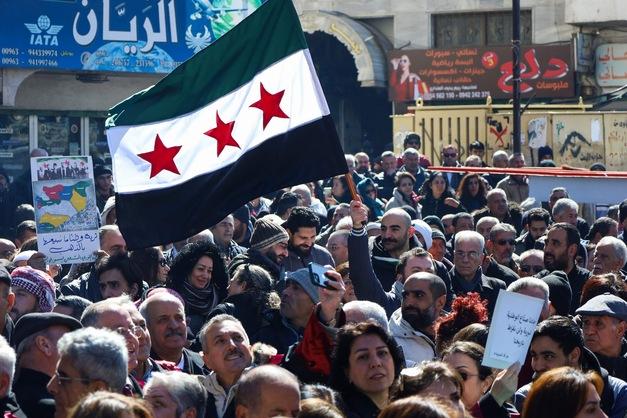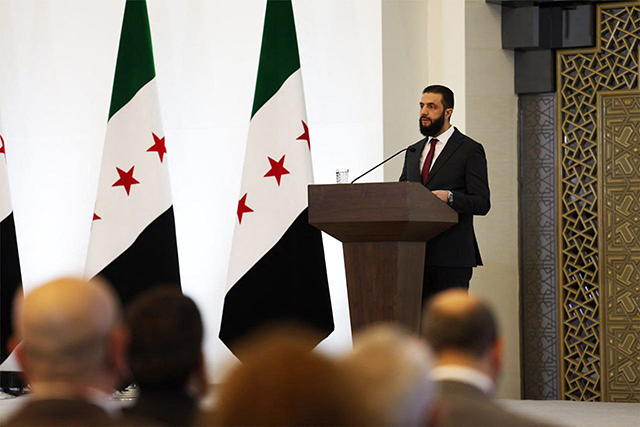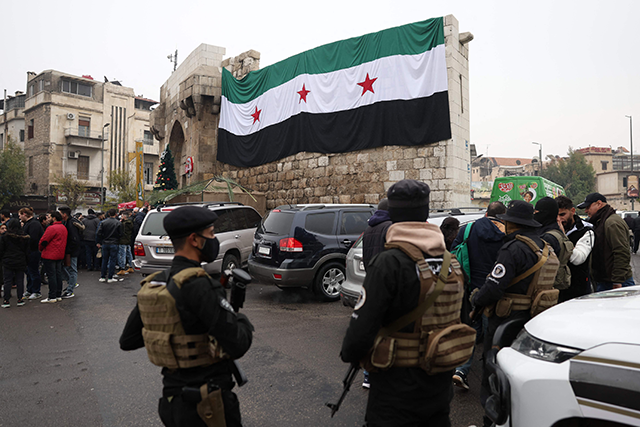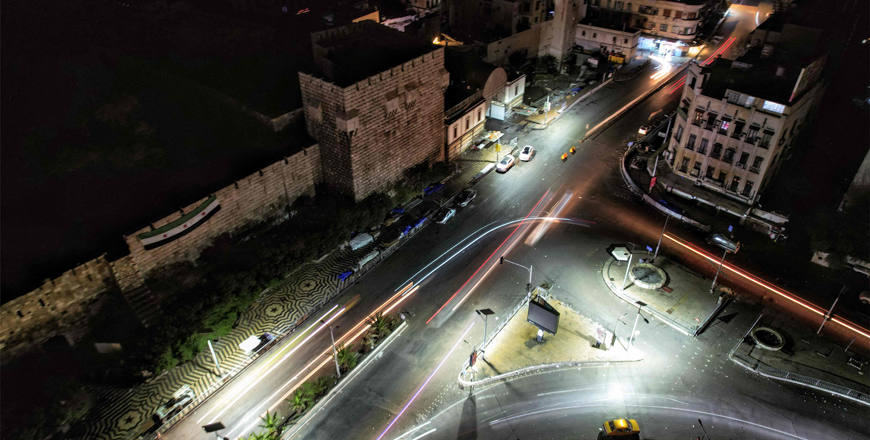You are here
Syria conference lays out post-Assad priorities, denounces 'provocative' Netanyahu remarks
By AFP - Feb 26,2025 - Last updated at Feb 26,2025

Syrians lift placards as they demonstrate in the central Karama Square of the southern city of Suwayda on February 25, 2025, in rejection of statements made by Israel's premier on the weekend. (AFP photo)
DAMASCUS - A national dialogue conference held Tuesday in Damascus set out a path for the new Syria following the fall of Bashar Al Assad.
Among the principles agreed to was a state monopoly on arms, which came with Syria's Kurds at odds with the new government over the future of their armed units.
Interim President Ahmed Al Sharaa, in a speech to attendees, said the country was at a "new historic phase" after more than a decade of civil war.
A closing statement, which is expected to be advisory rather than binding, included 18 points that "will serve as a basis" for the reform of state institutions and touch on Syria's political life, economy, defence policy and rights.
The statement read out by Houda Atassi, a member of the conference's preparatory committee, called for "a monopoly on weapons by the state" and a new professional national army.
Any "armed formations outside the official institutions" would be "outlawed", according to the statement -- an implicit reference to Kurdish-led forces and other factions that have refused to lay down their arms since Assad's toppling.
It also rejected "provocative statements" by Israeli Prime Minister Benjamin Netanyahu, who said his country "will not allow" Syrian armed forces to be deployed south of Damascus, and condemned "the Israeli incursion into Syrian territory".
While the conference was ongoing, protesters gathered in cities across Syria including the capital and Suwayda in the south to protest against Netanyahu, state news agency SANA reported.
The statement also rejected "all forms of discrimination based on race, religion or sect and the achievement of the principle of equal opportunities".
Civil society, religious communities, opposition figures and artists were represented at the hastily organised conference -- an initiative unheard of under Assad.
However, officials from the semi-autonomous Kurdish administration that controls swathes of the country's north and northeast criticised being shut out of the event, decrying the "token representation" for minority groups.
The Kurdish administration said in a statement that it will "not be a part" of implementing the recommendations of the conference which "does not represent the Syrian people".
Addressing the conference earlier, Sharaa said: "Syria has invited all of you today... to consult with each other on the future of your country."
"Syria is indivisible; it is a complete whole, and its strength lies in its unity," the interim president declared, adding that "the unity of arms and their monopoly by the state is not a luxury but a duty and an obligation."
Sharaa also said authorities would "work on forming a transitional justice body to restore people's rights, ensure justice and, God willing, bring criminals to justice".
'Restoring stability'
Organisers said the semi-autonomous Kurdish administration and affiliated bodies were not invited due to the exclusion of armed groups, a reference to the US-backed, Kurdish-led Syrian Democratic Forces (SDF).
Kurdish administration official Hassan Mohammed Ali told AFP that the exclusion would have "negative repercussions and will not lead to solutions to the problems and crises that Syria has been suffering from for decades".
'Rule of law'
Caretaker authorities have been charged with managing affairs until March 1, when a new government is due to be formed.
In his speech, Sharaa emphasised the importance of the rule of law and highlighted the interim authorities' work "pursuing those who committed crimes against Syrians".
"We must build our state on the rule of law, and the law must be respected by those who establish it," he said.
Sharaa's HTS has its roots in Syria's former Al Qaeda affiliate, and is proscribed as a terrorist organisation by many governments including the United States.
But the group has moderated its rhetoric and vowed to protect Syria's religious and ethnic minorities.
Sharaa said earlier this month that it could take four to five years to organise elections in Syria and two to three years to rewrite the constitution.
Syria is also without a parliament, after the Assad-era legislature was dissolved following his December 8 ousting.
Related Articles
DAMASCUS — Syria's new leaders announced Tuesday that they had reached an agreement with the country's rebel groups on their dissolution and
DAMASCUS — Two weeks after seizing power in a sweeping offensive, Syria's new leader Ahmed al Sharaa on Sunday said weapons in the country,


















